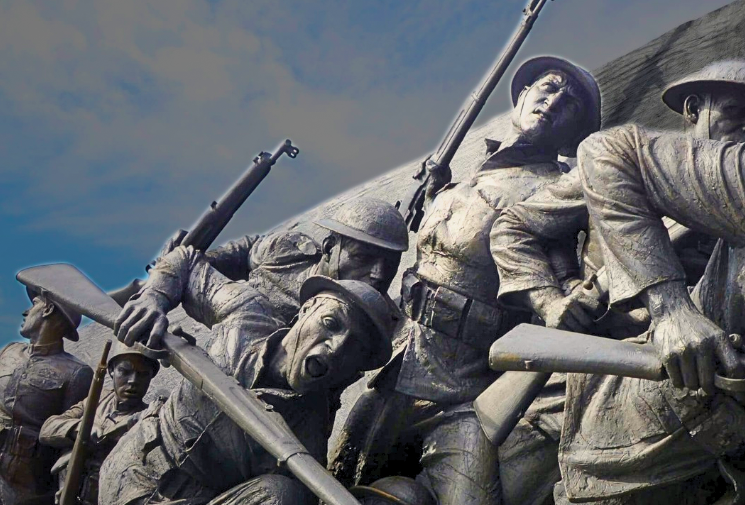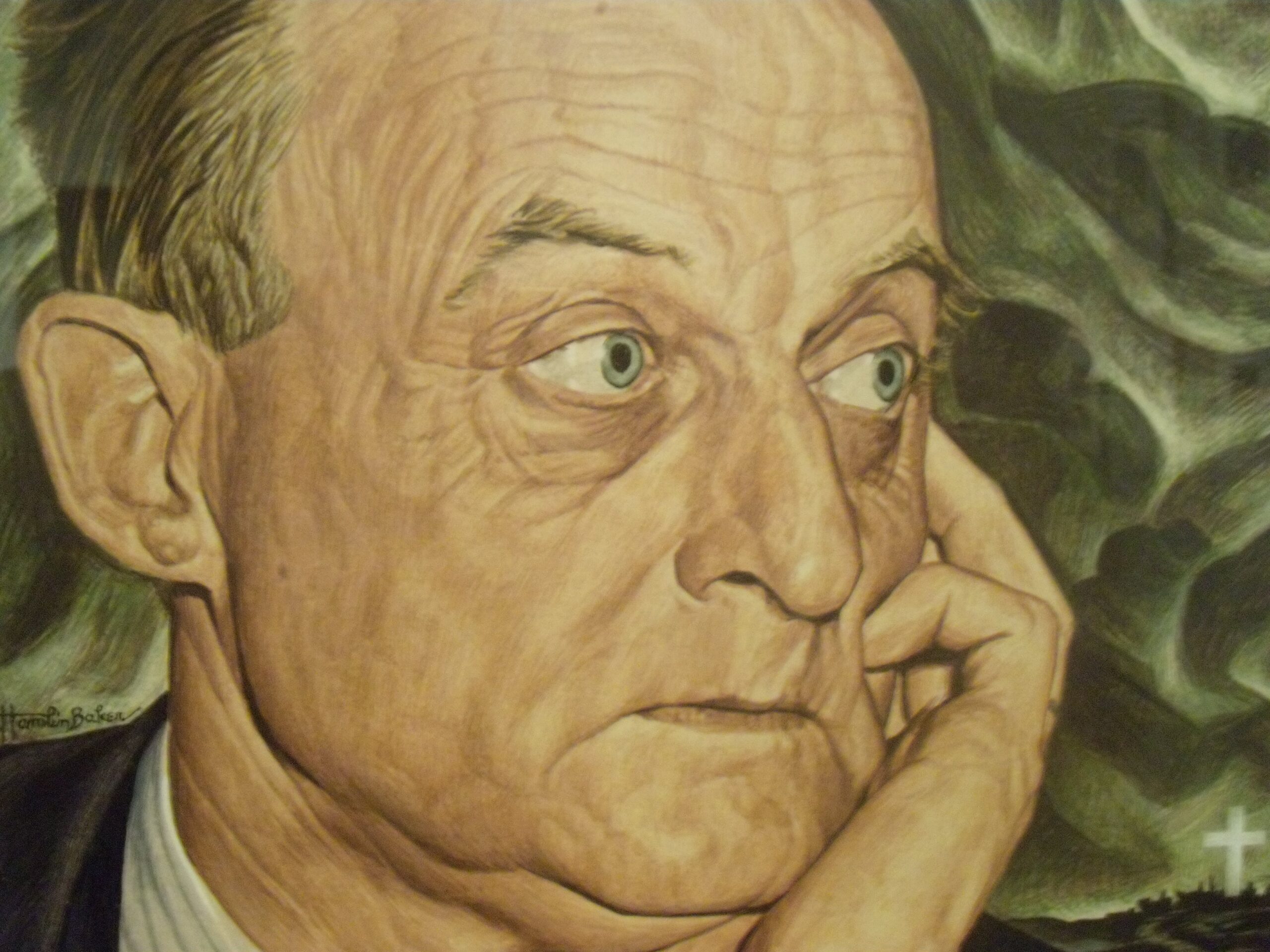Richard John Neuhaus: A Life in the Public Square by Randy Boyagoda (New York: Image, 2015)
I first saw and heard the Reverend Richard John Neuhaus at a Christian service at New York City’s beautiful, neo-Gothic, Protestant Riverside Church forty years ago, on September 14, 1975. Although I was never to attend another service in that church, I was to see and hear a good deal of Neuhaus over subsequent decades until his death in 2009. More to the point, I was to read him assiduously, like a growing number of people, in books and in the pages of several magazines, including the monthly First Things, which he founded, edited, and raised to a position of authority equivalent to or greater than the Jewish monthly Commentary under the editorship of Norman Podhoretz from the 1960s through the ’80s. Neuhaus and Podhoretz were to become friends and allies, both turning against the political and cultural left in which they had participated in the ’60s and helping to shape an emergent neoconservative political-cultural-religious position that elicited the loyalties and efforts of some of America’s leading intellectuals and has had continuing effect on public debate and public policies, both domestic and foreign.
The Sri Lankan–Canadian scholar and novelist Randy Boyagoda has now written an outstanding biography of Neuhaus that is well worth reading both as a portrait of an important figure in American cultural and religious life and as a narrative guide to the tempestuous politics and culture of the United States and the world over the past half century. It is a considerable accomplishment and makes absorbing reading, catching—in a way no piece of theoretical or social science writing could—the capacity of a gifted, articulate intellectual and activist to shape or at least affect the age in which he lived, and not only to be determined by it.
Neuhaus’s personal odyssey has an exemplary character that was lived out in the full glare of the public square while also engaging and illuminating the most private depths of religious-philosophical meditation and conviction. An American born in 1936 and raised in rural central Canada, son of a German-American Missouri-Synod Lutheran minister, he spent much of his adolescence in the American Midwest and Texas, eventually studying at Concordia Seminary in St. Louis, the flagship of the Lutheran Church–Missouri Synod, a seminary with surprisingly long, deep, learned, and orthodox traditions. Ordained in this doctrinally conservative church, he was to spend the rest of his life as a celibate clergyman, though not always as a Lutheran.
Perhaps the first great public experience of the young clergyman was his becoming the minister of a poor, interracial, inner-city New York City Lutheran church, St. John the Evangelist in Brooklyn, starting in 1961. He was to remain at the church until 1978, seventeen momentous years in a very poor section of the nation’s greatest city. By the end of this period, he had become one of the most influential clergymen, theologians, moralists, and political-religious activists in the country, making a large number of new friends and allies—as well as enemies.
Boyagoda details Neuhaus’s key role in the anti–Vietnam War movement nationally and in the civil rights movement both locally and nationally, and Neuhaus must be credited for living out existentially and theologically his civil rights convictions in the raw, ugly, poor, dangerous combat zone of the inner city. Very close, individually and politically, to Social Gospel, left-liberal Protestants (and Catholics) in the ’60s and ’70s, and often in the forefront of their efforts, Neuhaus nevertheless somehow retained and deepened a private devotion and theological rigor that many of his allies were happy to surrender in the interests of liberation to what one of them, Harvey Cox, was notably to celebrate as “the secular city.”
How and why Neuhaus took this different, more orthodox course is ultimately a mystery, as are the deepest motives of any seriously conscientious person, but there are some identifiable factors: Neuhaus’s “high” Lutheran ecclesiology, containing a reverence for and dogged adherence to Christian liturgical devotion and practice; his celibacy; his quick but deep intelligence, possessing him of a growing cultural sophistication; his loyalty to Christian teachings and traditions about abortion and sexuality; his dialogue with Jews and Jewish thought, especially in the largest Jewish city in the world.
To these must be added two great personal and intellectual friendships: a long-standing one with fellow Lutheran clergyman and patristics scholar Robert L. Wilken, and one developed in New York City with the witty, brilliant, but devout sociologist Peter L. Berger. Wilken’s deep grounding in the classical-Christian traditions earned him academic eminence and would eventually lead him, like Neuhaus, into the Catholic Church. Berger’s influence was more challenging.
For the cosmopolitan Berger and his sociology comprised an apparently strange combination of learned, urbane, witty, world-class skepticism and debunking rationalism, on the one hand, with devout Christian and theological convictions, practices, and interests, on the other. Living in Brooklyn, Berger and his German sociologist wife became Neuhaus’s closest friends and Lutheran parishioners. They inevitably also put him in touch with the wider world of Europe (Berger was a German-speaking Austrian immigrant) and the cutting edge of academic social science.
The Neuhaus-Berger relationship was dialectical, with Berger’s personal and family history disposing him to a conservative humanism with great suspicion of all political and religious enthusiasms whatsoever, while Neuhaus was at least temporarily or intermittently taken with the alternately expectant euphoria and apocalypticism of New York City and university campuses in the 1960s. This intellectual friendship was one of the most fruitful of the last fifty years, though broken in later years by Neuhaus’s militancy on the abortion issue and his growing proximity to the Catholic Church, which he ultimately joined.
Neuhaus’s chief theological-political work, published in 1984 in the run-up to the second Reagan presidential victory, can be credibly said to have contributed to that victory by helping to forge alliances on the religious and secular right and attracting disgruntled, socially conservative Democratic intellectuals. The Naked Public Square: Religion and Democracy in America was widely reviewed and sold 30,000 copies. It remains, arguably, one of the greatest synthetic works on politics, ethics, religion, and theology written by an American, and fit for comparison to the works of Reinhold Niebuhr and Jacques Maritain. In fact, it marks a key point of transition for Neuhaus from the Protestant “Christian realism” of Niebuhr toward the Catholic, natural-law neo-Thomism of Maritain, Etienne Gilson, and John Courtney Murray—and toward Vatican II and Pope John Paul II.
Though still writing as a Lutheran in The Naked Public Square, Neuhaus had emerged as a New York intellectual, writing wittily and well about deep matters, and combining earnestness and urbanity, conviction and scholarship, in a way that would characterize his writing for the rest of his life. With wide learning and great power, he makes the classic, metaphysical, natural-law argument that there is a permanent moral order that transcends all positive law, which derives its just authority from conformity to that moral order.
He is with Locke and Blackstone against Bentham; with Lincoln against Douglas and Justice Taney; with Maritain, C. S. Lewis, and J. C. Murray against Justice Holmes and John Dewey. Legal positivism or “pragmatism” is ultimately amoral and dangerous—whether exemplified by the antebellum South or its subsequent Jim Crow segregation, or Nazism, or South African apartheid, or communist “people’s republics,” or in the abortion license of Roe v. Wade (1973).
Neuhaus had come to the view, also memorably argued by Harry V. Jaffa in two great books on Lincoln, that the U.S. political system is the “last, best hope of mankind,” because its founding documents and institutions have separated, balanced, and limited powers, its Bill of Rights has assured individual freedoms, and that these partial, incomplete, but real accomplishments are based on a rational premise about human nature that draws on ages of thought and struggle to stabilize an at least minimally decent democratic republic in a way that no other major modern nation has succeeded in doing.
Yet in the weeks leading up to the 1996 presidential election, Neuhaus and his increasingly Catholic allies would publish a skeptical, contentious symposium in his monthly First Things called “The End of Democracy: The Judicial Usurpation of Politics.” If Neuhaus had been accused, with some justice, of being on the radical left in the late ’60s, he was now to be accused of being dangerously on the radical right. More painfully, he was to lose friends and allies of long-standing, including Peter Berger and Norman Podhoretz.
Neuhaus had joined the Catholic Church in 1991, becoming a priest but retaining his role as an editor and writer. Enormously impressed by the spectacular, world-historical role of Pope John Paul II and the people of Catholic Poland in the overthrow of communism in Europe, he had come to see modern Catholic social doctrine as the ultimate foundation for and fulfillment of the natural-law premises and aims of the American republican democracy. But he thought this constitutional order was being steadily undermined by legal positivism and pragmatism in the law schools, the judiciary, and the post-Carter, increasingly secular Democratic Party.
In the 1950s, even a liberal Democrat such as Justice William O. Douglas could confidently reiterate the American proposition in Zorach v. Clauson (1952), when he wrote, “We are a religious people whose institutions presuppose a Supreme Being.” Sociologically literate, Neuhaus knew that the first contention might some day cease to be true, but that the second, theological-political contention was logically as well as historically true and could not be denied or eliminated without incoherence and the ultimate collapse of the American civic and political order. Even Louis Menand was later to concede, in the pro-pragmatist The Metaphysical Club (2001), that his preferred pragmatist position could not have inspired or sustained the Reverend Martin Luther King Jr. and the largely Christian American civil rights movement, to which Neuhaus was so thoroughly engaged and dedicated.
But if Berger and Neuhaus broke over the “judicial usurpation” symposium, much of their earlier joint work on civil society was to retain its vigor and increase its influence under the presidency of the younger George Bush. Their short book, To Empower People: From State to Civil Society, was first published in 1977 and republished in 1996, and was at the heart of President Bush’s “compassionate conservatism” and its recognition of the importance of civil society as a host of voluntary, nongovernmental organizations that give meaning, purpose, principle, and succor to people’s lives, outside the reach of big government and giant corporations.
By the first decade of the twenty-first century, Neuhaus was, along with his friend William F. Buckley Jr., probably the most effective orthodox Christian political moralist in the country. His efforts to coordinate dialogue between Catholics and Evangelicals (first in “Evangelicals and Catholics Together” and in later, ecumenical documents) were augmented by his sharp sensitivity to Jews, Jewish issues, and Judeo-Christian dialogue. Praising First Things, the distinguished English sociologist David Martin wrote in the pages of the London Times Literary Supplement (June 22–28, 1990) that Neuhaus was “a Niebuhr redivivus.”
But Neuhaus had no illusions about the reality and consequences of secularization and the decline of Western culture. Daniel Bell had argued that “the essence of modernity is that ‘nothing is sacred,’ ” and Neuhaus himself quoted one of the great late-twentieth-century Polish intellectuals (along with Pope John Paul II and Nobel laureate Czeslaw Milosz), Leszek Kolakowski, critiquing “the morbid tempo of progress”: “When I try to point out the single most dangerous side of modernity, I tend to sum up my fear in one phrase: the disappearance of taboos. . . . The various traditional human bonds which make communal life at all possible, and without which our existence would be regulated only by greed and fear, are not likely to survive without a taboo system.”
In the academy and in the wider culture wars, desacralization, pornography, and violence have been increasingly prevalent and glamorized by increasingly powerful audiovisual means. Nativist American cultural barbarism, from Whitman to Ginsberg and Mailer, has become toxically mixed with desperately fashionable French Nietzschean-Heideggerian relativism and nihilism, a veritable witches’ brew.
Neuhaus’s final book, American Babylon: Notes of a Christian Exile, posthumously published in 2009, contains some of his most profound insights and powerful writing. As Charles Morris wrote in the New York Times, “American Babylon displays Neuhaus in all his virtues—elegantly argued and written, fair-minded and with a formidable range of reference—making the important point that politics without an anchor in a public morality can quickly slip away in dark directions,” as it did in the writing of Richard Rorty.
Neuhaus’s target in the chapter entitled “An Age of Irony” is the celebrated postmodernist philosopher and literary critic Richard Rorty (1931–2007), who saw himself as the successor of both Nietzsche and John Dewey. Neuhaus’s painstaking anatomy of Rorty’s elaborate, self-celebrating nihilism is a brilliant, antiseptic piece of revelation and demolition: revealing how insidiously corrupt and fecklessly amoral the academy had become in its most pampered and praised specimens; and demolishing the rational and ethical claims to coherence and value of yet another “imperial self,” another self-styled heroic heretic, who mocks the broad daylight of proportion that greets each one of us as he or she wakes anew every morning. For Neuhaus, reason and grace, not irony and the self, had the last word.
Randy Boyagoda’s excellent biography provides an illuminating companion to Neuhaus’s own writings and a first-rate account of cultural politics in America over the past fifty years. In its understated and judicious way, it is also a moving tribute to a life of exemplary moral and intellectual discernment and courage—a truly religious life. ♦
M. D. Aeschliman is professor emeritus of education at Boston University, professor of Anglophone culture at the University of Italian Switzerland, and author of The Restitution of Man: C. S. Lewis and the Case against Scientism. He has edited paperback editions of novels by Charles Dickens and Malcolm Muggeridge.













